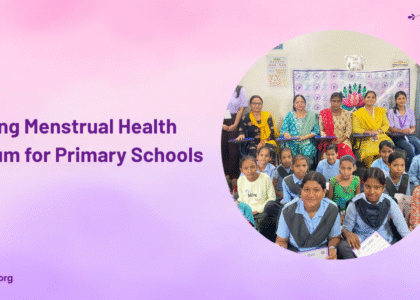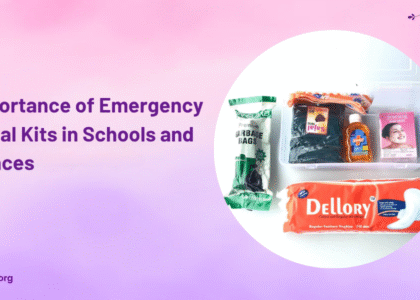Introduction
Mental well-being is basic to physical well-being, but various women and children aren’t able to take care of it because of social stressors, emotional wounds, and physical wounds. Security is key to progressing mental well-being. Security spaces give security, care, and appreciation, particularly for women and children who are encountering wounds, segregation, or emotional disarray. This blog explores the significance of secure spaces and how they affect mental well-being.
What Are the Benefits of Safe Spaces?
Secure spaces are places where people don’t judge, hurt, or segregate others. People can openly express themselves and share their encounters in secure spaces without fear of derision or dismissal. Secure spaces are based on shared regard and belief, giving individuals a feeling of enthusiastic security that’s basic to recuperating and great mental well-being. NGO help for education can also be crucial in these spaces, providing resources and opportunities for growth and learning. For women and children, these spaces offer help, allowing them to feel secure from the pressures and hardships they otherwise face.
Why Safe Spaces Are Essential for Mental Well-Being
- Healing from Emotional Pain
Most women and children are involved in passionate and mental injury as a result of mishandling, bullying, disregard, or viciousness. Such experiences have a critical impact on mental prosperity. Secure spaces enable individuals to work through their damage in a secure, non-judgmental space, where they can start the recovery process without fear of re-traumatization. - Supporting Emotional Expression
n a world where vulnerability is not fostered, safe spaces allow women and children to be vulnerable and express themselves freely about their emotions and feelings. Whether happy, scared, or sad, safe spaces allow individuals to be honest about their feelings, which is essential for maintaining mental health. - Developing Support Networks
One of the significant benefits of secure spaces could be a sense of association and having a place advertised by them. Women and children can interface with others who share comparative experiences and hence shape a strong base. This base licenses assumptions of misery and isolation, common among individuals enduring mental illnesses, to be lessened. - Inspiring Self-Empowerment
Safe spaces allow people to recover their sense of control and self-worth. Whether through the method of treatment, bolster groups, or peer associations, secure spaces permit people to construct certainty and empower themselves, moving them within the course of progressed mental well-being.
Ways to Create Safe Spaces for Women and Children
Making safe spaces is more than giving physical safety—it’s making passionate back, understanding, and belief. Following are important steps in creating these essential environments:
- Nurture Honest Conversations
Creating an environment that encourages open communication is essential. Women and children must feel secure sharing their thoughts and opinions without fear of judgment or misinterpretation. This can happen through one-on-one dialogues, group discussions, or family talks. - Make Resources Available
Secure spaces must give access to administrations like treatment, counseling, support groups, and mental health programs. These administrations empower people to get to the assets vital to bargain with enthusiastic pain, work through injury, and pick up an improved understanding of how to progress their mental well-being. - Safeguard Privacy and Confidential Information
Security is the foundation of a secure space. To build trust, it is essential to assure people that their personal experiences and information will remain private. Clearly understanding what people can and cannot discuss is vital to ensuring a sense of security. - Build a Welcoming Environment
An open, secure path grasps individuals of all foundations. Women and children must feel embraced, respected, and valued as they are, regardless of where they come from, their ethnicity, or the circumstances of their lives. In case everybody feels acknowledged, it develops belief and gives a sounder premise for emotional health. - Offer Emotional Guidance
Emotional support in the safety of a space is most important. This may be achieved through group counseling, mentoring, or simply being present to listen. Women healthcare NGOs play a crucial role in providing such support, offering resources and guidance tailored to women’s specific needs. Feeling that someone can empathize and care may greatly enhance one’s mental health.
Categories of Safe Spaces for Women and Children
- Safe Physical Environments
Physical safe spaces, counting covers, community centers, and secure houses give quick refuge for women and children escaping abuse, violence, or other traumatic encounters. These secure spaces give not just fair assurance but also the opportunity to get nourishment, restorative services, and counseling. - Digital Safe Spaces
For others who cannot access spaces in the physical world or would rather have the anonymity of being online, virtual support groups and web counseling are extremely useful. These give a place where they can tactfully offer assistance and take an interest in dialog without fear of presentation. - Group Therapy and Emotional Support
Helpful spaces—either physical or online—create a space where women and children can get proficient help. Such spaces might include one-on-one treatment, group treatment, or booster groups in which a person can talk with others who have gone through comparable issues. - Training and Educational Outreach Programs
Secure spaces aren’t confined to shelters or treatments; they can also include educational programs and mindfulness campaigns. Educational programs and mindfulness campaigns serve as secure spaces. By promoting quality, providing mental health resources, and offering tools for women and children to navigate the ups and downs of life. Education NGOs play a key part in encouraging these programs, guaranteeing access to important assets and support for those in need.
In Conclusion
Safe spaces are an imperative portion of keeping up mental well-being for women and children. By building spaces in which individuals feel safe, listened to, and caught on. We lay the foundation for mending and advancement. Within the frame of physical space, online communities, or treatment, safe spaces empower individuals to revamp their quality. Recapture their certainty, and put their mental well-being first. NGOs for women play a significant part in making and supporting these spaces, guaranteeing that women have access to the resources and care they require. All of us have to work towards the change of these spaces since. They are key to building flexibility and well-being for those who require it the most. In case you or somebody you know requires help, assets exist to support the improvement of the safe spaces required for mental well-being.
Frequently Asked Questions
- What is considered a safe space for women and children?
A safe space can be a strong environment where women and children are protected from harm and empowered to express themselves freely. - Why do safe spaces matter for mental health?
They provide a nurturing environment where individuals can recover from emotional pain, reduce stress, and access necessary support. - How can I create a safe space for women and children?
By regarding protection, cultivating emotional backup, empowering open discourse, and giving access to resources and help. - What types of safe spaces are available for women and children?
These include physical safe zones, online communities, therapy, support groups, and educational and awareness programs.









